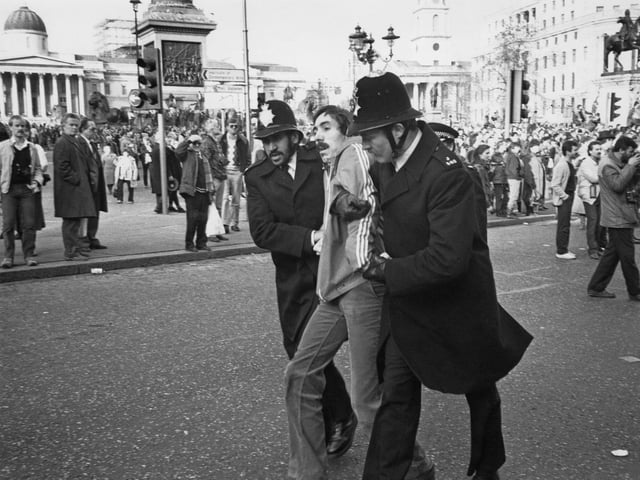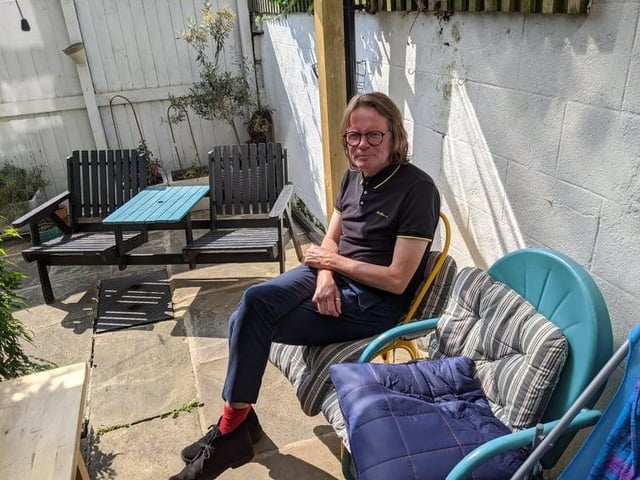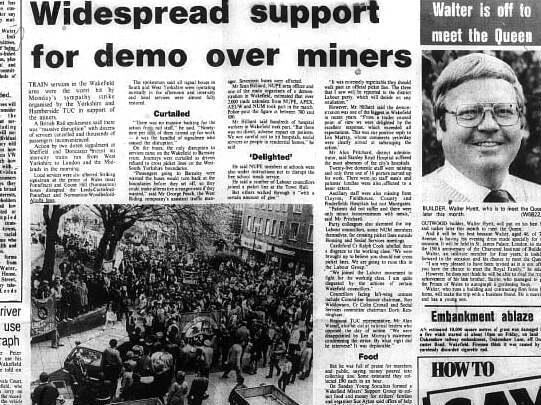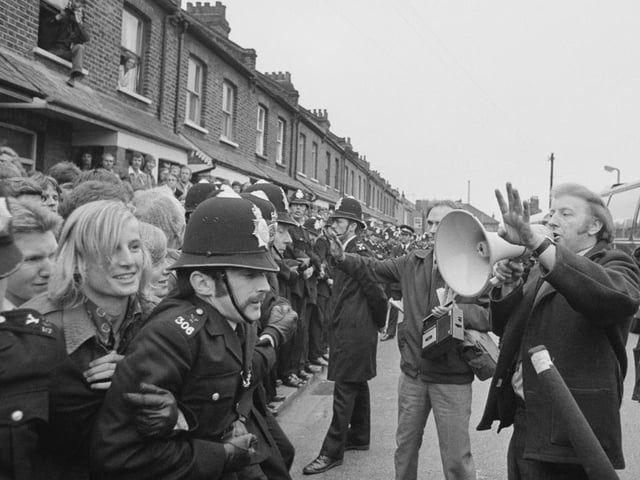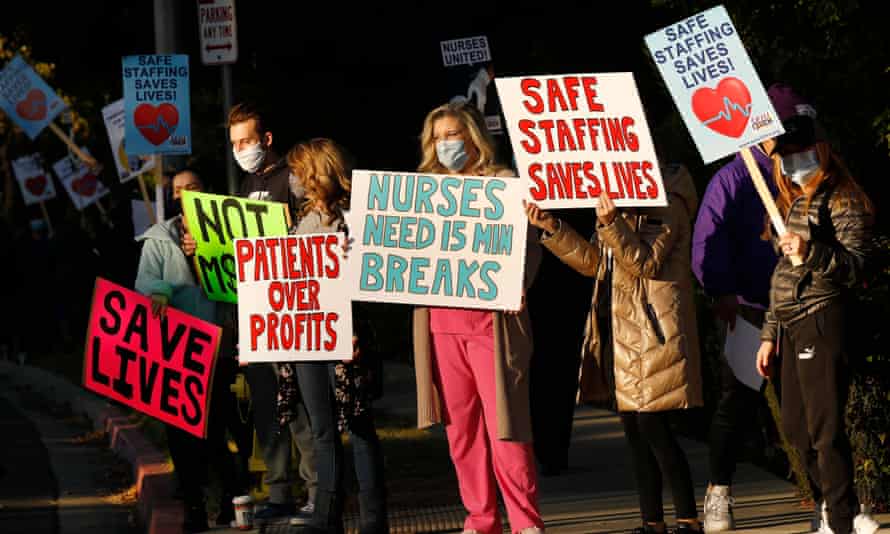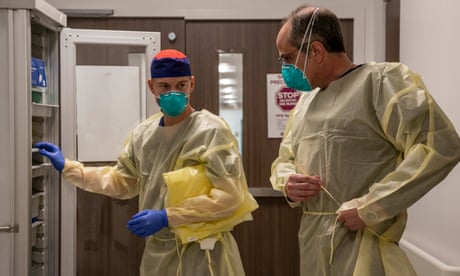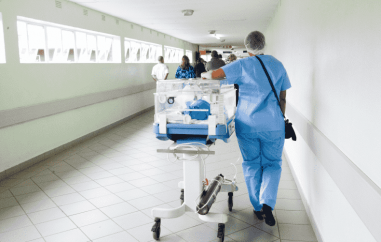 In Berlin's state-owned hospitals, the Charité and the Vivantes hospitals, the week starts with an industrial action by the nursing staff. They demand, after the applause in the pandemic, a collective agreement on better staffing ratios. The strikers want to protest in front of the Vivantes headquarters in Reinickendorf. Afterwards it is to go in a demonstration at noon to the Charité-Virchow-Campus in Wedding.
In Berlin's state-owned hospitals, the Charité and the Vivantes hospitals, the week starts with an industrial action by the nursing staff. They demand, after the applause in the pandemic, a collective agreement on better staffing ratios. The strikers want to protest in front of the Vivantes headquarters in Reinickendorf. Afterwards it is to go in a demonstration at noon to the Charité-Virchow-Campus in Wedding.
According to information from the Daily Mirror, the Vivantes board has obtained a temporary injunction prohibiting the strike by the nursing staff. The reason given by the labor court was the lack of an emergency service agreement. Formally, the court's decision applies only to Vivantes.The Senate is now exerting pressure on the board of the state-owned hospital chain to sign a corresponding emergency service rule with Verdi. Then the strike could probably continue until Wednesday, as the union has announced.
On which wards are nursing staff on strike - and what is the impact?
On Monday, employees at Vivantes and Charité went on strike. "At each of the sites, 30 to more than 100 employees are on strike," said Meike Jäger, Verdi's chief negotiator.On Tuesday, twelve teams at Vivantes hospitals and seven teams at the university hospital, which is also owned by the state, are to walk off the job. According to Verdi, at least one ward would be affected in almost all of the eight Vivantes hospitals and on the three Charité campuses - from Steglitz-Zehlendorf to Marzahn-Hellersdorf, from Spandau to Neukölln. So far, there is talk of normal wards in gastroenterology, surgery and geriatrics.Up to and including Wednesday, only a few hundred of thousands of hospital employees will probably strike, but Verdi is already threatening: if the employers do not move, they will have a vote on an indefinite strike of greater proportions starting on August 30. Then, in September, all union members could be called to an "enforcement strike." Tens of thousands of treatments in the affected wards would have to be canceled for the time being.
Charité has already postponed about 2,000 treatments until after Wednesday, and Vivantes is likely to have the same number. So far, Verdi and the management boards of Charité and Vivantes have not reached a formal emergency service agreement.
Why are these emergency service agreements so important?
Scheduled interventions that can be postponed are canceled in crises: that was the case at the height of the coronavirus pandemic, and it is also common practice in the event of a strike. This does not apply to emergencies and time-critical operations (as in tumor treatment). For this, both sides agree on deployment modalities. This time, that hardly succeeds.
The management boards of Charité and Vivantes want to classify as many patients as possible as acute cases that cannot be rescheduled; the Verdi negotiators fear for the effectiveness of the industrial action. The union wants entire teams to go on strike, which means that wards will ultimately be closed - otherwise hardly anyone will feel the impact of the strike. Sick people who are already in bed will of course be cared for, said the Verdi negotiators. If no emergency service agreement is reached, a standard based on weekend services will be maintained.
However, Berlin's labor court issued a temporary injunction following a complaint by Vivantes: a strike without emergency services could lead to "danger to life and limb" of patients, and the union would - to put it simply - have to bow to the employers' emergency service ideas. The decision relates to kitchen and cleaning staff. However, it restricts the nursing strike.
What are the strikers demanding - and is an agreement in sight?
Verdi is demanding a "relief collective agreement": a fixed key for more nursing staff. In addition, the collective agreement of the public sector should apply to cleaning, transport and kitchen staff of Vivantes subsidiaries, which in individual cases can mean 800 euros more in monthly wages. This alone would cost Vivantes up to 35 million a year, according to the board, and the indebted hospital chain could not afford it.
According to Verdi's demand, at least ten percent more specialists would have to be employed in nursing. For the Charité, this means that about 500 more nursing staff would be needed in addition to the 4,700 currently employed. The labor market does not currently provide these, said Charité personnel manager Carla Eysel. If the university hospital were to commit itself to the Verdi personnel quotas, these could only be implemented if 80,000 fewer patients were cared for each year. Because clinics are paid per diagnosis with "case lump sums", there would then be less money from the health insurance companies, which would mean that jobs would have to be cut.
A formal, but in politics weighty problem comes in addition: Charité and Vivantes belong to Berlin's municipal employers' association. The umbrella organization of municipal employers (VKA) acts on behalf of this KAV, which, according to its statutes, would have to negotiate any collective agreement on relief itself.The Charité board offered the union a company-specific agreement that would be "as effective as a collective bargaining agreement," Eysel said: a strike clause would be included in a service agreement so that previously agreed staffing ratios could be enforced through industrial action. An agreement is not in sight.
What does the state government say - and what does the opposition say?
Politicians from the red-red-green coalition declared their solidarity with the nursing staff, while the responsible senators - Dilek Kalayci (Health) and Matthias Kollatz (Finance), both SPD - remained more silent. Labor Senator Elke Breitenbach (Left Party) was clear, calling the strike "legitimate". But Breitenbach is also part of the state government, which apparently sees no solution. Some in the health service and opposition say: The senate could help quite fast for hospitals, if that is also legally complicated.CDU top candidate Kai Wegner announced that the applause for the nursing staff in the Corona crisis was "a great sign," but now "tangible improvements" are needed: "There are not better working conditions without a better staffing ratio."
Wegner described the core problem as "the fact that the Senate is not fulfilling its investment obligation" - meaning the scarce funds to modernize buildings and technology. "As a result, hospitals are forced to cross-finance mandatory maintenance costs with per-case flat rates" - an accusation that is also being leveled at the hospitals themselves. Berlin's hospital association talks of 350 million euros a year to tackle dilapidated buildings and a lack of digitization.Florian Kluckert, health policy spokesman for the FDP in the House of Representatives, says: "Not only since Corona has the Berlin hospital landscape been on a drip and a permanent patient in intensive care." He says the Senate must equip the state-owned hospitals so that they are "competitive." Because the patients could have their postponed treatments, Kluckert does not say, also in other, privately-economically operated hospitals catch up.
Photo by Hush Naidoo Jade



 In Berlin's state-owned hospitals, the Charité and the Vivantes hospitals, the week starts with an industrial action by the nursing staff. They demand, after the applause in the pandemic, a collective agreement on better staffing ratios. The strikers want to protest in front of the Vivantes headquarters in Reinickendorf. Afterwards it is to go in a demonstration at noon to the Charité-Virchow-Campus in Wedding.
In Berlin's state-owned hospitals, the Charité and the Vivantes hospitals, the week starts with an industrial action by the nursing staff. They demand, after the applause in the pandemic, a collective agreement on better staffing ratios. The strikers want to protest in front of the Vivantes headquarters in Reinickendorf. Afterwards it is to go in a demonstration at noon to the Charité-Virchow-Campus in Wedding.






